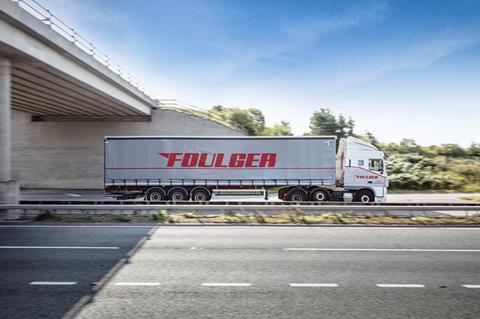The loss of a major customer at the end of 2016, alongside increasing costs for drivers’ wages and fuel inflation, saw Foulger Transport head into the red in 2017.
Newly published accounts for the year to 31 December 2017 show turnover declined by 2.4% year on year to £16.4m (2016: £16.8m) as a consequence of the loss.
Furthermore, in its strategic report to the accounts it concedes that it was “slow to react to the loss of revenue” and that an increase in the price of fuel was not passed on to customers in 2017.

This led to a pre-tax loss of £299,210 in the period, compared with a profit of £35,672 in 2016.
However, Peter Fields, director of parent company Kinaxia Logistics, told MT that under the leadership of recently appointed MD Sue Pye, Foulger was now “back on track”.
Speaking about the loss of the unnamed customer he added: “In this industry, in that particular sector there are some big customers who switch every now and again – normally it’s due to a change of management, or they get acquired by someone. It’s one of those sort of things. And a year or so later, they come back.”
Read more
- Kinaxia Logistics sets sights on purchase of 11th haulier by the year’s end
- Foulger Transport appoints new managing director
- Palletways welcomes Foulger Transport and Transol Logistics into the fold
In regards driver’s wages, Fields said: “There is a massive shortage of drivers, which is worse in some parts of the country than others.
“We are constantly reviewing wages depending on what is happening locally. But all it takes is for a superstore to open up and they pay 20% more than the market [rate] and the drivers go.”
Foulger therefore looked at pay and provision and “decided to give a big uplift, which is possibly overdue. And that obviously didn’t help the cost size of it”, Fields said.
2018 trading
Fields predicted that turnover at the business would not likely recover the ground lost last year in 2018.
He added: “When you see improvement month on month, that’s what matters to us. So when you lose a big company you can’t always replace it with another big one. So you replace it with smaller ones and that’s what is happening really.
“It’s a great business[Foulger] and it’s in a great location. But when it comes to the management in place, and the changes being made, it will recover going forward – we’re not short-term thinkers so we don’t get out if the going is bad.”













